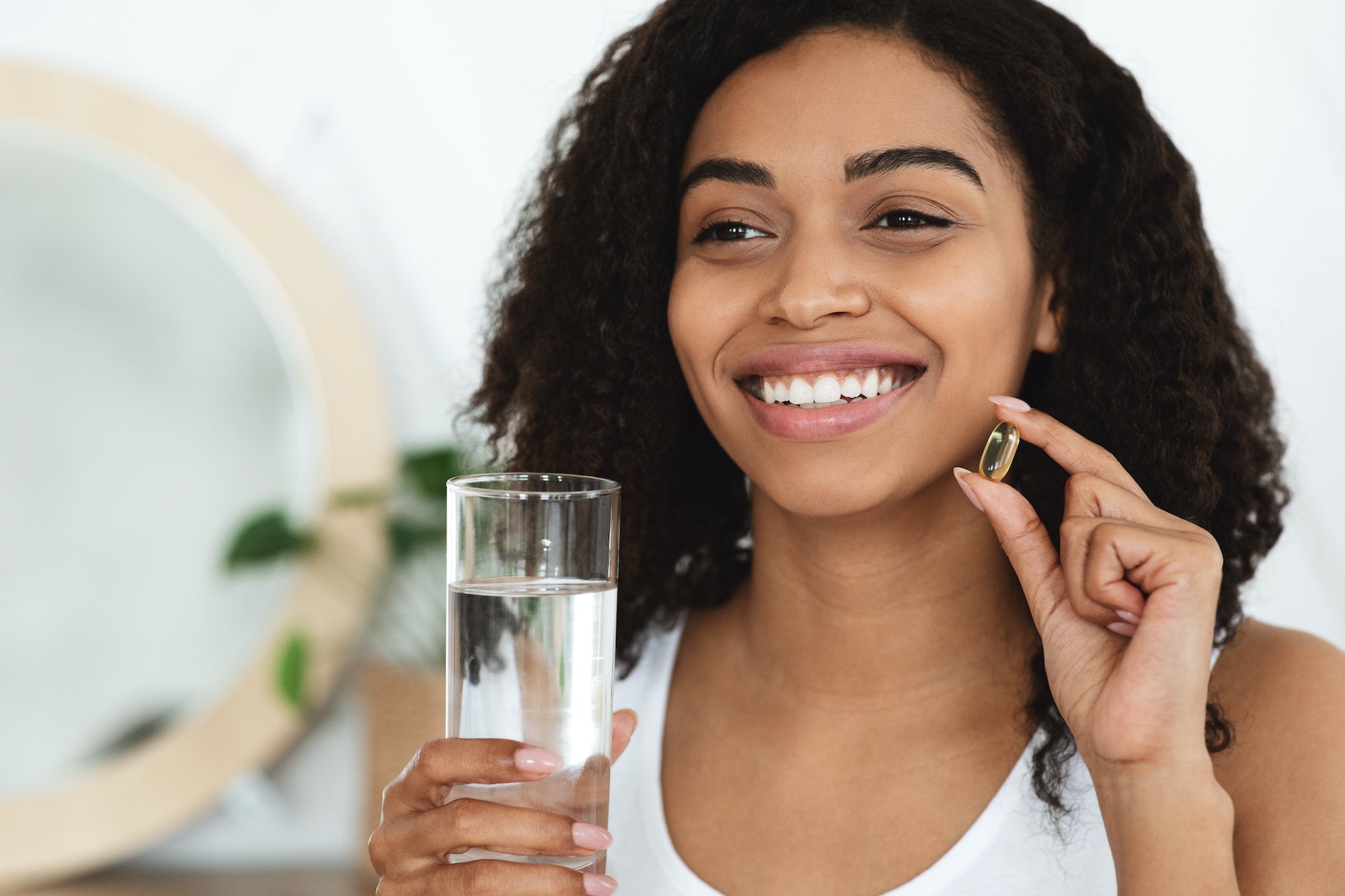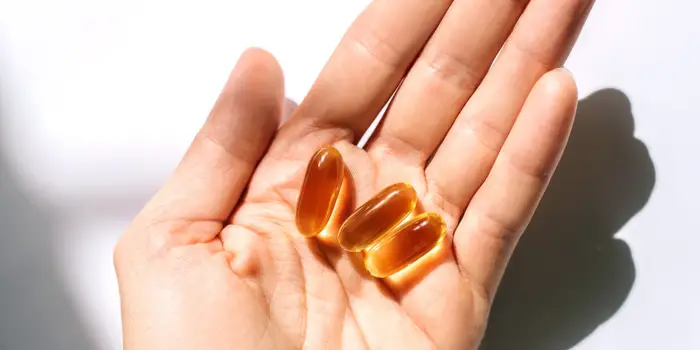Although ageing is an inevitable part of life, many of us want to retain our youthfulness for as long as possible. Healthy habits are the best way to support healthy ageing. Here are our picks for the best supplements that may help slow the effects of ageing.

A quick look at the best supplements for healthy ageing:
- Curcumin supplement: Thorne Curcumin Phytosome Capsules
- EGCG supplement: The Republic of Tea Decaf People’s Green Tea Bags
- Collagen supplement: mindbodygreen Beauty & Gut Collagen+
- CoQ10 supplement: Nutricost CoQ10 100mg
- Vitamin C supplement: Thorne Vitamin C with Flavonoids
- Vitamin E supplement: Nutricost Vitamin E Softgels
- L-theanine supplement: Double Wood L-Theanine Supplement
1. Curcumin
Curcumin — the major active compound in turmeric — has been shown to possess powerful cellular protective properties, which are attributed to its potent antioxidant effects.
A process called cellular senescence occurs when cells stop dividing. As you age, senescent cells accumulate, which is believed to accelerate ageing and disease progression.
Research shows that curcumin activates certain proteins that help delay cellular senescence and promote longevity. Curcumin may combat cellular damage and significantly increase life span. This compound has been shownTrusted Source to postpone age-related disease and alleviate age-related symptoms as well.
This may be why turmeric intake is associated with a reduced risk of age-related cognitive decline in humans.
2. EGCG
Plus, this compound may promote longevity and protect against age-related disease.
EGCG may work by restoring mitochondrial function in cells and acting on pathways involved in ageing. It also induces autophagy, the process by which your body removes damaged cellular material.
In addition, there may be an association between green tea intake and protection against ageing skin, as well as reduced hyperpigmentation caused by ultraviolet (UV) light.
Additionally, one review suggests that daily green tea intake may suppress brain ageing by activating nerve cells and reducing stress.
3. Collagen
As you grow old, the production of collagen — a protein that helps maintain skin structure — slows, leading to accelerated signs of ageing like wrinkles.
Some research suggests that supplementing with collagen may reduce signs of ageing, including wrinkles and dry skin.
For example, a 12-week study of 72 women demonstrated that taking a supplement that contained 2.5 grams of collagen, along with several other ingredients, including biotin, per day significantly improved skin hydration, roughness, and elasticity.
Though these results are promising, many of these studies are funded by companies that manufacture collagen products, which may influence study results.
4. CoQ10
Research suggests that levels of CoQ10 decline as you age. Supplementing with it has been shown to improve certain aspects of health in older individuals.
For instance, supplementing with CoQ10 and selenium may improve overall quality of life, reduce hospital visits, and slow physical and mental deterioration.
Additionally, CoQ10 supplements may benefit heart health by reducing stiffness in your arteries, lowering blood pressure, and preventing the buildup of oxidised cholesterol in your arteries.
5. Vitamin C
Vitamin C functions as a powerful antioxidant in your body, helping to protect cells from oxidative damage. It also plays important roles in immune function, inflammation regulation, and many other processes that are essential to healthy ageing.
This is why you should maintain an optimal intake of this vitamin to support health and protect against age-related conditions.
For example, in a study involving 80 adults with an average age of 60, those with higher blood levels of vitamin C performed better on tasks involving attention, focus, memory, decision-making, recall, and recognition.
Vitamin C is also essential for skin health. Supplementing may improve skin hydration, stimulate collagen production, and safeguard against wrinkle development and premature ageing due to sun exposure.
What’s more, some evidence Trusted Source suggests that supplementing with vitamin C improves immune function in older adults.
As older adults have a higher risk of suboptimal or deficient vitamin C levels than middle-aged or younger adults, they may want to consider taking supplements, especially if their diet is low in vitamin C-rich foods like fruits and vegetables.
6. Vitamin E
Vitamin E plays essential roles in immune function and the regulation of inflammation. Research has shown that vitamin E can help decrease free radicals and oxidative stress.
It may also be beneficial for age-related conditions, such as type 2 diabetes and colitis, plus it can reduce cognitive decline in older adults.
However, most studies on vitamin E are on animals. More research is needed on humans to determine just how effective it is for healthy ageing.


